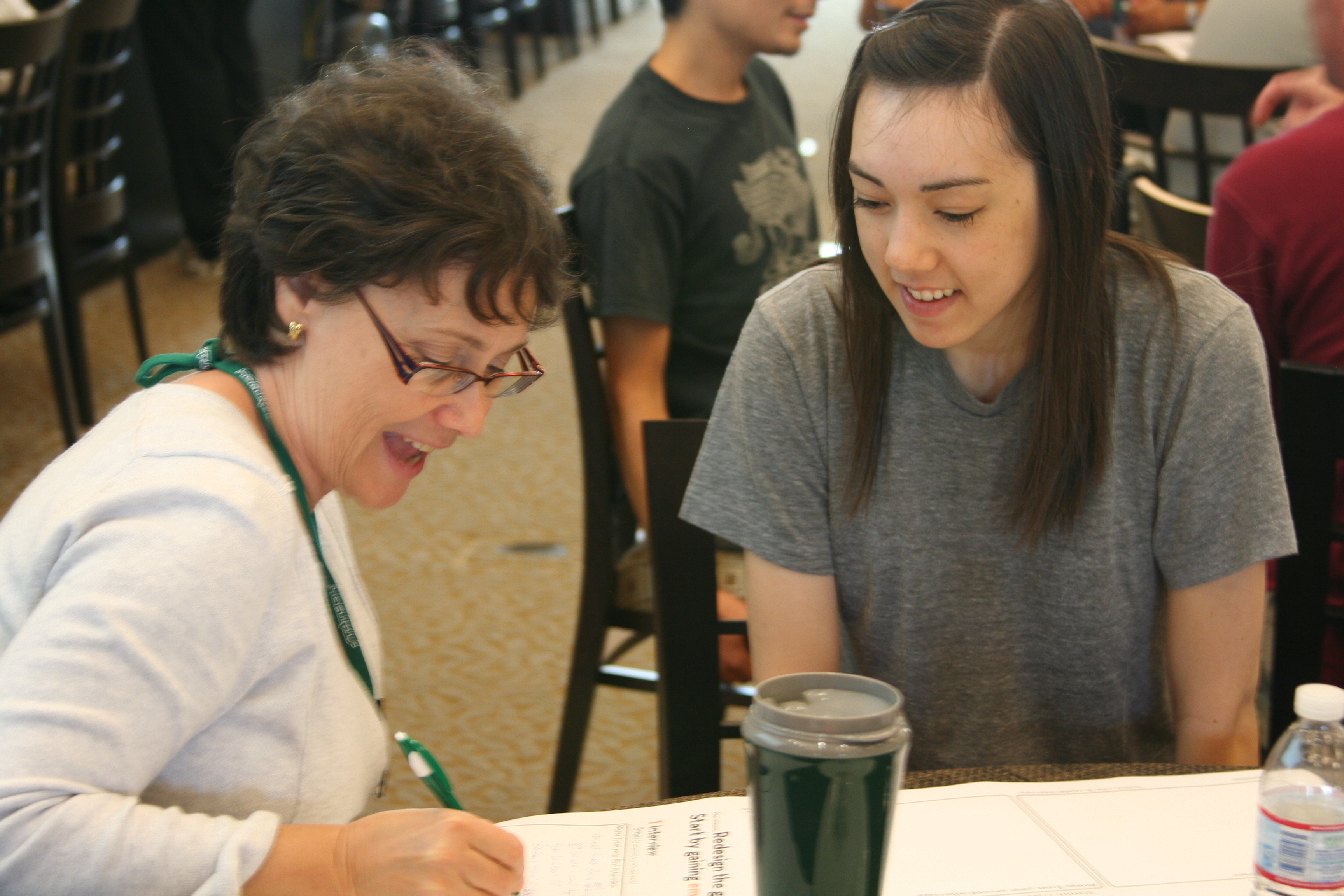Carnegie works on new approaches for teaching math in community colleges
Goal is a curriculum that will better fit student needs and build students’ confidence.
August 02, 2011
TROY, Mich. – Community colleges typically have open access and admissions. However, more than half of all incoming community college students need to enroll in at least one remedial class to bring their skills up to a college level. Most of those students end up in remedial, or “developmental,” math.
Many never finish. They run out of patience. They run out of money. They run into a wall of frustration and succumb to the nagging little voice that says, “You're just not a math person.”

In 2010, The Kresge Foundation added its support – a two-year, $2 million grant – to that of the Carnegie Corporation of New York, the Bill & Melinda Gates Foundation, The William and Flora Hewlett Foundation and Lumina Foundation.
Partnering community colleges in eight states will begin using the new programs this fall. The goal is to make the curricula available nationwide in 2012.
By completely reimagining the way math is taught, Statway and Quantway align with Kresge’s goal of supporting innovation that improves higher education productivity. The programs also provide pathways to and through college for students who might otherwise be left behind.
“Innovation could be high-tech, but in many cases it’s making a curriculum that makes more sense,” said Kresge Education Program Director Bill Moses. “It's not dumbed down – rather, we’re talking about maintaining or increasing quality to make the math curriculum fit what students need.”
Carnegie gathered leading education researchers, mathematicians and community college faculty and students to figure out why the current system fails so many students. They found that math is taught essentially the same way everywhere in the United States.
So a student who fails at math in high school and arrives at community college underprepared is likely to be taught the same way in developmental math as they were in high school – very possibly with the same results.
“The emphasis has been on memorizing formulas and end-of-course exams and content exams,” said Charles Cook, vice chancellor for instruction at Houston Community College. “I think the Statway project really has it right, where we’re looking at mathematical reasoning and problem solving and how math can serve you as a tool to further understanding, further investigation and further knowledge.”
Carnegie’s $14 million Quantway/Statway initiative is developing two mathematics programs: one-year courses that build quantitative literacy (Quantway) and statistical proficiency (Statway). They’re infusing both with teaching strategies that build students’ confidence as math learners.
“Developmental mathematics has become a burial ground for the aspirations of myriad students trying to improve their lives through education,” said Carnegie senior partner Uri Treisman. A MacArthur fellow, Treisman is also a professor of mathematics at The University of Texas at Austin.
The project also attends to the role of instructors. About two-thirds of instructors who teach developmental classes are adjuncts – part-time and sometimes transient hires who aren’t paid to play a role in improving the courses.
“We’re looking at how do we create new roles and create a way of mining their expertise to improve these courses,” Treisman said. “We don't think there’s an effective solution to the developmental ed math problem unless we can work with and through adjuncts.”
Both Quantway and Statway will include an embedded focus on productive persistence, a set of methods that help students ingrain good learning strategies, recognize and celebrate their successes and, maybe most importantly, see themselves as people who can “get” math.
“A faculty member in North Carolina told me, ‘I used to be teaching 18-year-olds without direction. Now I’m teaching people who've cashed in 401(k)s in desperate hope for new careers and a new life based on new skills,’” said Treisman. “We owe it to them to create a structure that works, and works quickly.”
See a January 2011 video about the work on developmental math in community colleges.
For more information, contact Cynthia Shaw, cbshaw@kresge.org or call 248-643-9630.
The Kresge Foundation
3215 West Big Beaver Road
Troy, Michigan 48084
248.643.9630 telephone
248.643.0588 fax
Tags:

